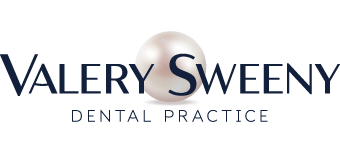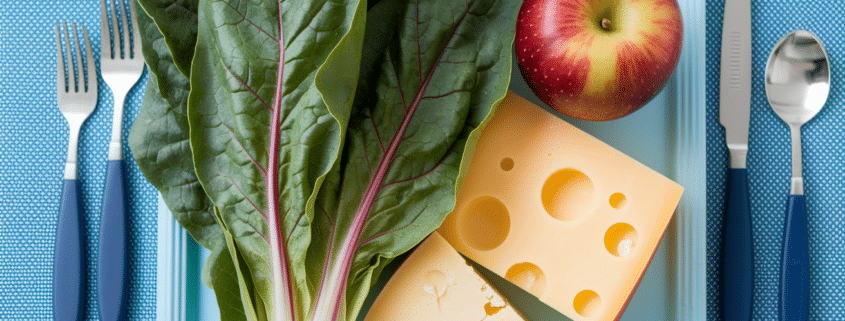How Your Diet Impacts Oral Health: What to Eat for a Healthy Smile
You are what you eat, and your smile is proof. From cavities to gum disease, your diet has a direct say in your dental destiny. At Valery Sweeny DDS, the focus isn’t just on treating problems—it’s about preventing them. And nutrition is one of the most powerful (and overlooked) tools in your dental toolkit.
This blog dives into the essentials of nutrition and oral health, giving you clear guidelines on what to eat—and what to avoid—if you want a smile that’s both stunning and strong. Spoiler alert: it’s not just about brushing and flossing.
TLDR – Quick Guide
- Your diet has a direct impact on your oral health.
- Calcium, phosphates, and Vitamin D are essential nutrients for strong teeth.
- Sugar, acidic foods, and processed carbs are your smile’s worst enemies.
- Hydration helps with saliva production, which naturally protects teeth.
- A dentist who understands the full picture, like Dr. Valery Sweeny, can help guide nutrition-based prevention strategies.
Detailed Breakdown
What Nutrients Support a Healthy Smile?
To build and maintain strong teeth, your body needs:
- Calcium: Found in dairy, leafy greens, and fortified plant-based milks. It strengthens enamel and jawbones.
- Vitamin D: Helps your body absorb calcium. Sunlight, eggs, and fatty fish are your go-tos.
- Phosphorus: Works with calcium. Load up on nuts, beans, and whole grains.
- Vitamin C: Crucial for healthy gums. Oranges, berries, and bell peppers are excellent sources.
- Antioxidants: Found in fruits and vegetables, they help repair tissue and reduce inflammation in the gums.
Foods That Naturally Protect Teeth
Some foods act like nature’s toothbrushes or fortifiers. Consider adding more of these to your diet:
- Cheese: Boosts pH levels in the mouth, reducing the risk of decay.
- Crunchy veggies (like carrots and celery): Stimulate saliva and physically scrub teeth.
- Green and black teas: Contain polyphenols that slow the growth of bacteria.
- Water: Keeps the mouth hydrated, washes away debris, and promotes saliva.
What to Avoid for Better Oral Health
Let’s be blunt: some foods are like kryptonite for your teeth.
- Sugary snacks and drinks: Fuel for bacteria that cause cavities.
- Acidic foods and drinks (like citrus and soda): Wear down enamel over time.
- Sticky foods (like dried fruit or gummies): Linger on teeth and feed bacteria.
- Refined carbs (white bread, chips): Break down into sugars that promote decay.
How Often You Eat Matters Too
It’s not just what you eat—it’s how often. Frequent snacking means your teeth are under constant attack from acids and sugars. Limit snacks between meals and opt for tooth-friendly options like cheese or nuts.
Prevention with a Professional Touch
Dr. Valery Sweeny and her team don’t just fill cavities—they help prevent them with whole-person care. That includes coaching patients on diet and lifestyle, empowering them to make choices that support lifelong dental health. It’s this kind of care that sets the practice apart from your average dental office.
Key Takeaways
- Your teeth are living tissues that need nutrients to stay strong.
- Foods rich in calcium, phosphorus, and Vitamin C should be your go-tos.
- Sugars, acids, and sticky foods are major contributors to decay and gum disease.
- Drinking water and reducing snack frequency can significantly improve your oral health.
- Personalized care from a dental professional like Dr. Sweeny can help you align your diet with your dental health goals.
FAQs
1. What is the link between nutrition and oral health?
Nutrition directly affects the health of your teeth and gums. The right nutrients help build enamel and prevent gum disease, while a poor diet can accelerate decay and inflammation.
2. Can certain foods really help prevent cavities?
Yes! Foods like cheese, leafy greens, and crunchy vegetables stimulate saliva production and provide essential minerals that protect enamel.
3. Are sugar-free drinks okay for your teeth?
Not always. Many sugar-free drinks are still acidic and can erode enamel over time. Water remains the best option for your smile.
4. How can I reduce acid damage from food?
Rinse your mouth with water after eating acidic foods, wait 30 minutes before brushing, and balance acids with alkaline-rich foods like spinach and cucumbers.
5. Should I talk to my dentist about my diet?
Absolutely. A knowledgeable dentist like Dr. Valery Sweeny can help you tailor your diet to strengthen your teeth and gums and reduce your risk of dental issues.




Leave a Reply
Want to join the discussion?Feel free to contribute!